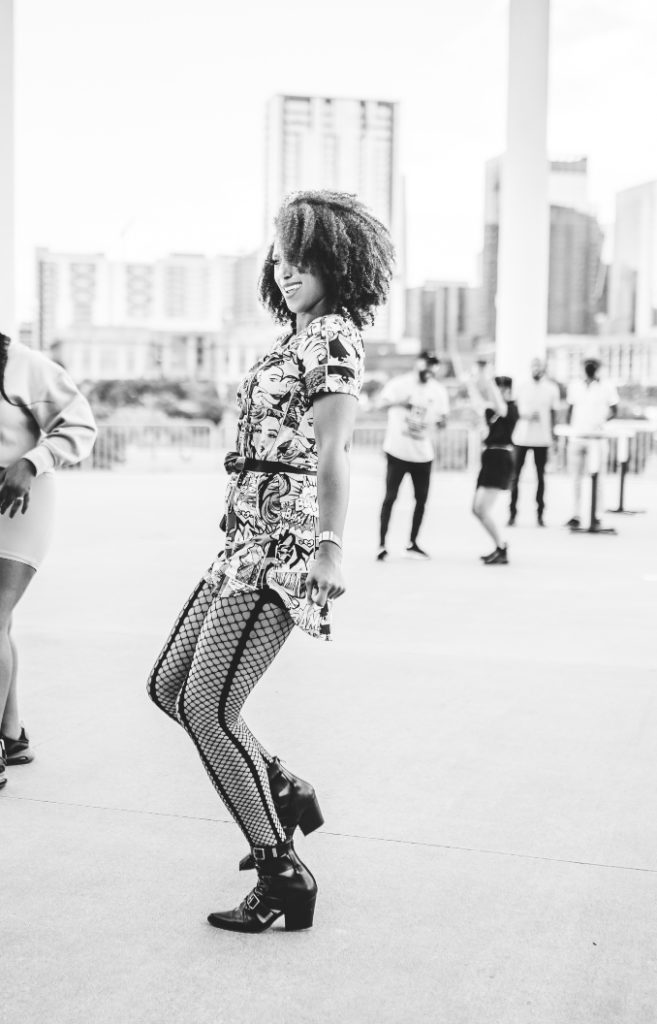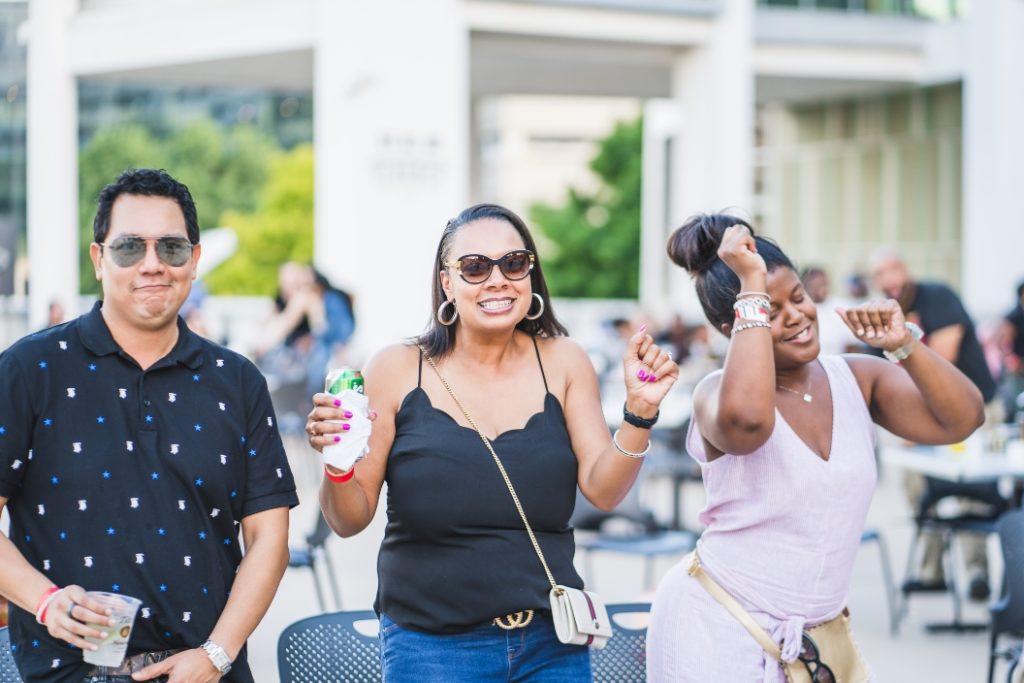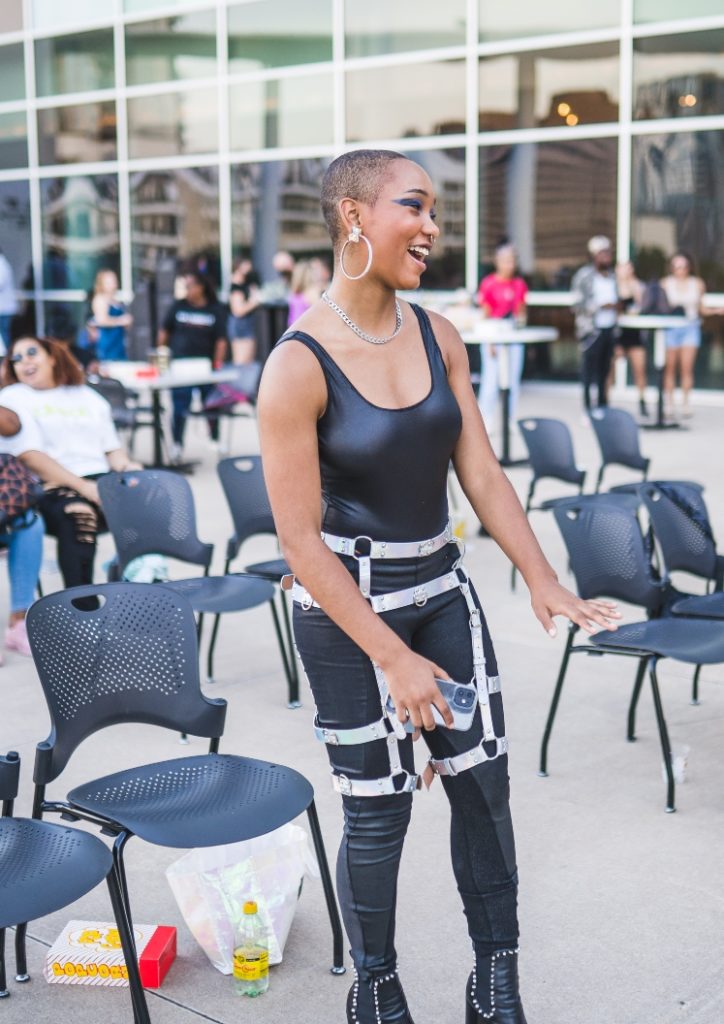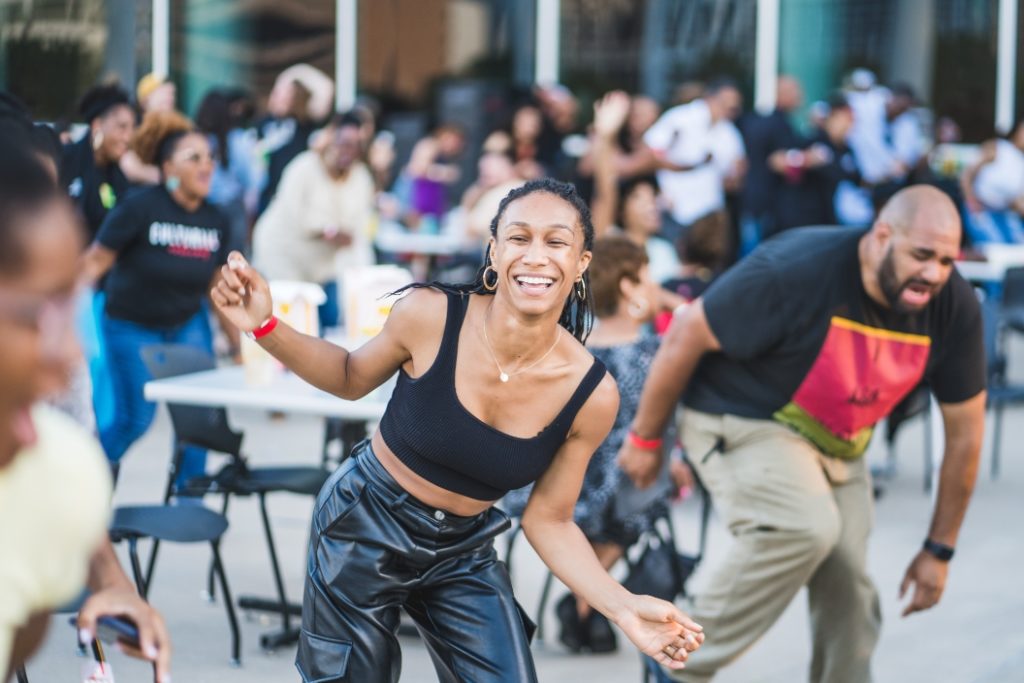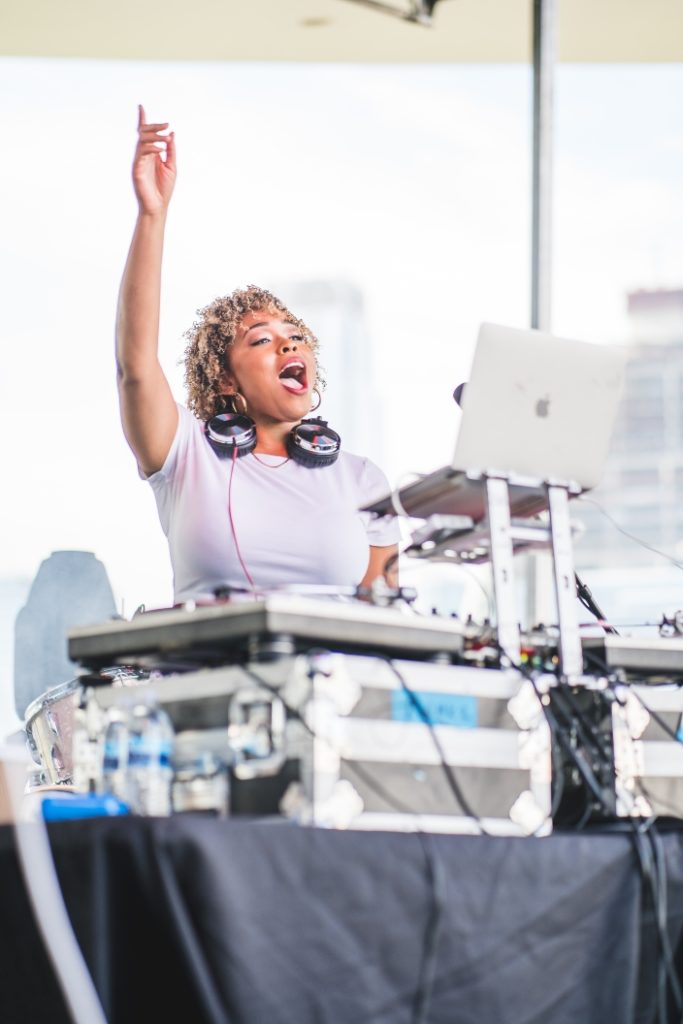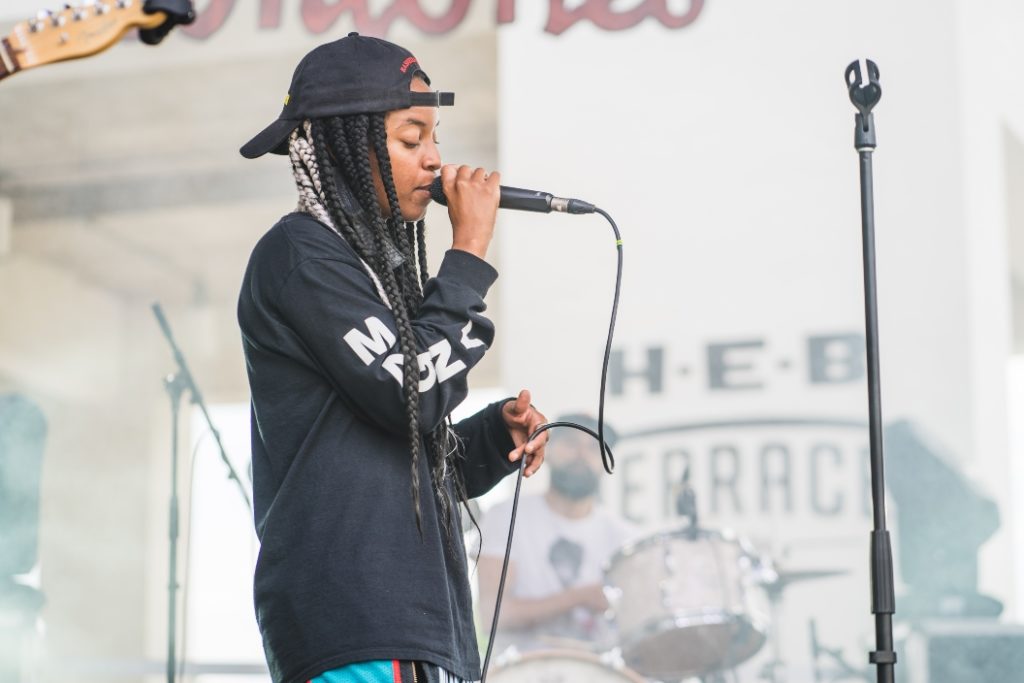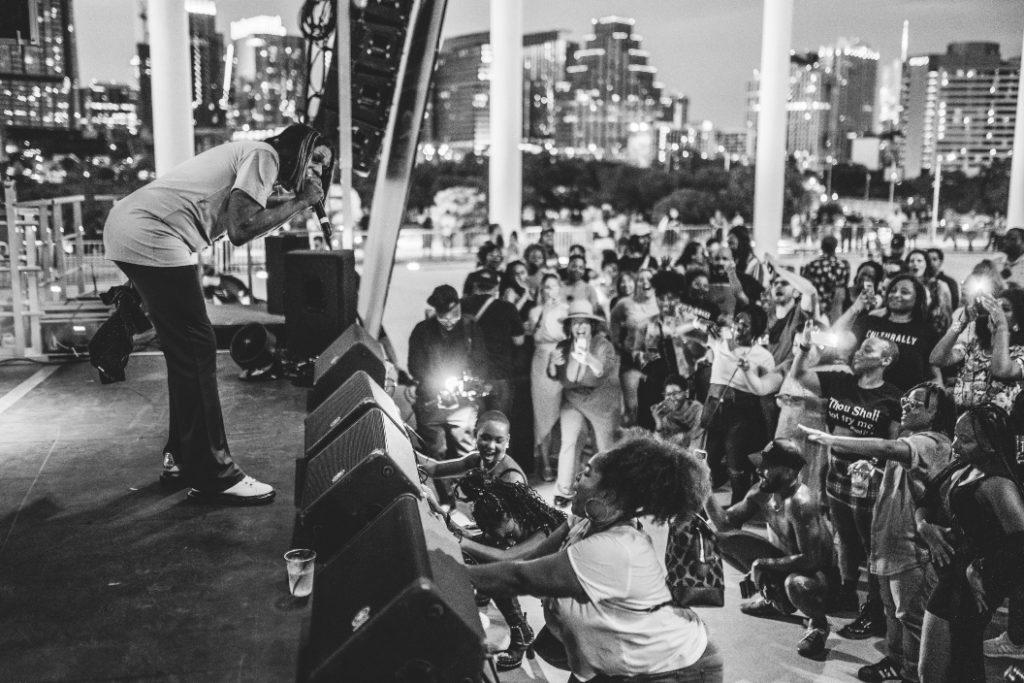Six Square continues to preserve East Austin’s culture through their phenomenal work. Director of Programs Regine Malibiran answered a few questions about Six Square’s mission and their annual festival Beyond the Square.
By Monica Godinez, Photos courtesy of Six Square
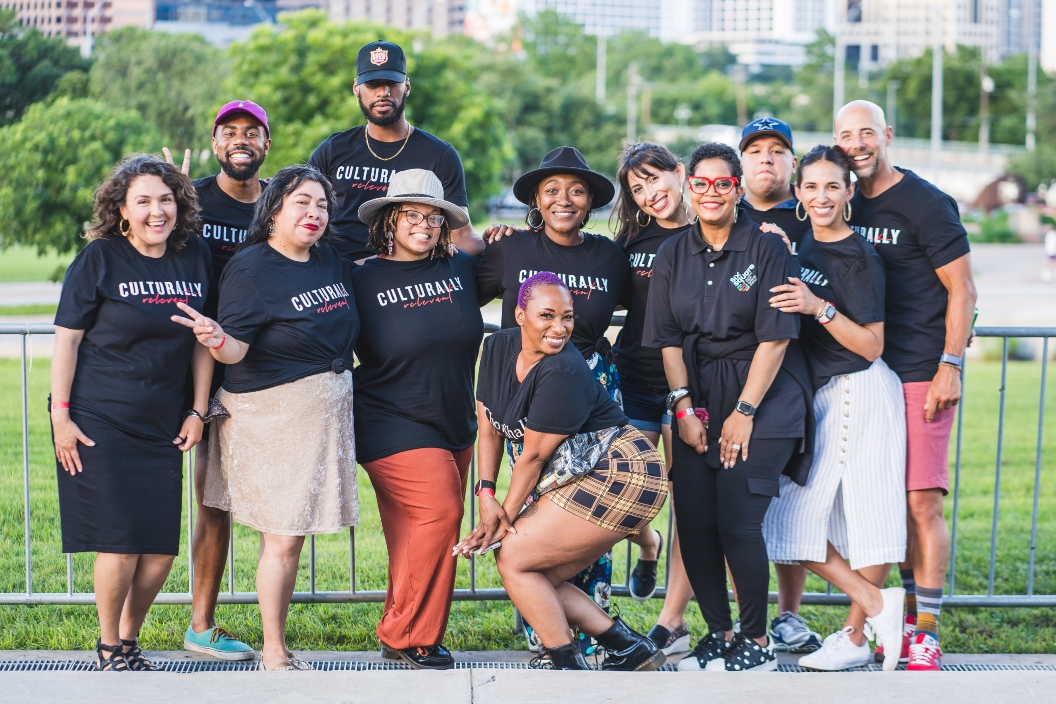
What is Six Square?
Regine Malibiran: Six Square is a nonprofit 501(c)(3) here in Austin. The Six Square District governs the Black Cultural Arts District here in the city. Six Square refers to the 1928 city master plan. The city of Austin forced Black communities to move from wherever they were in the city to a six-square-mile plot of land in East Austin. They were [forced to move]or else they would lose access to public services like hospitals, fire fighters, etc. The real estate in [East Austin] was less favorable, and you can clearly see the class disparity between East and West Austin. The significance of the work we do, our mission, is to celebrate, elevate and preserve the cultural legacy of Black Austinites that once thrived in East Austin.
How did the Beyond the Square event come to be?
RM: [In 2019] I went freelance, and the then executive director at Six Square reached out to hire me for the District’s Cultural Arts Festival. During this process the ED was replaced and we had to rebrand Beyond the Square. The first year was in 2019 and it was held on the East side. It included musical performances, film screenings, where the audience [got]the chance to actively engage with the film directors, and we had a Black caterer for the event. It was smaller then, and the venue was [at]the old Six Square house on the East side on San Bernard. We are no longer [there]because of the pandemic. In 2020 we considered [having]it but couldn’t because, you know, it was 2020.
This year we did it in June because of grant cycles. Beyond the Square is partially funded by the Cultural Heritage Festivals Grant through the city of Austin’s Cultural Arts Division. [The festival] came to be because we wanted to display the Black culture in Austin and really carve a space out for the creativity in this community. Also to show the level of talent here in Austin that might often be overlooked. With the event in June, we wanted it to accomplish three goals: be intergenerational, musical and educational.
How has Beyond the Square aided in the preservation of Austin’s Black culture?
I will say we paid over two dozen people [to work]the festival, and we work with a large majority of Black artists and vendors. All of our performers were Black artists. Big Freedia came in from New Orleans, which was super exciting. Magna Carda, a local hip-hop group, and DJ Kay Cali are two local artists who performed. [In partnership with] Raasin in the sun and Samara Banks we unveiled a mural [honoring]two local musical legends: Ernie Mae Miller and Margaret Wright. The mural is [located]at Kenny Dorham’s Backyard, an iconic music venue [that honors East Austin’s culture].
We also had a collaboration with Black History Bike Ride. Talib Abdullahi curated a music-specific bike tour through the district. We completely sold out, and 30 to 40 people did the ride. Not only did we have a bike tour that focused on musical landmarks. We also incorporated local community leaders to speak along the tour. It was so fun and cute. We had hired a pedicab for two of our speakers: Harrison Eppright and Homer Hill. Harrison was on the bullhorn pointing out various sites in the district and their significance. Homer Hill, founder of the Urban Music Festival and native Austinite, was telling his stories. Another speaker for after the bike tour was Harold McMillan. [Overall] the event was a great way for people to engage!
Why is it especially important to host events such as Beyond the Square now?
RM: Here at Six Square we said something often. Black people in 2020 were and still are facing two pandemics: COVID-19 and racism. Black people are disproportionately affected by both. Part of the reason why it was important to host an event like Beyond the Square was to give the community something to celebrate. To give them a reason to gather and just be themselves within a space that was thoughtfully created for them.
We had artists coming up and telling us how gratifying it was to look out into the crowd and see that they were performing for their own people. There’s a lot to be said with something like that. Especially with Austin branding itself as the Live Music Capital of the World. Yet Black artists that dominate popular music genres have a hard time getting the funding and access they need to succeed. I think it is important to have these events that allow these artists exposure.
It is also important to show that this is what we used to be. There are so many people that move to Austin that don’t realize or aren’t aware of the history of the land they now live on. They don’t know that this was a thriving Black neighborhood even after the city basically used the district as a loophole for segregation. Which is why it is doubly insulting that the city is [once]again pushing people out of the place it pushed them into in the first place. [This] is [another reason]why it is important to have events like these. To keep these stories alive. It is important for us to give back to this community that has been underserved for so long.
What are ways Austin Woman and the community can further support Six Square?
RM: In general when it comes to supporting, donations will always be super helpful. Also by doing your own research when it comes to Black history and anti-racism education. [Today] a lot of people are really engaged in holding city officials accountable. So find those people who you can throw your support behind. It is also very important to continue having these discussions within your own community.
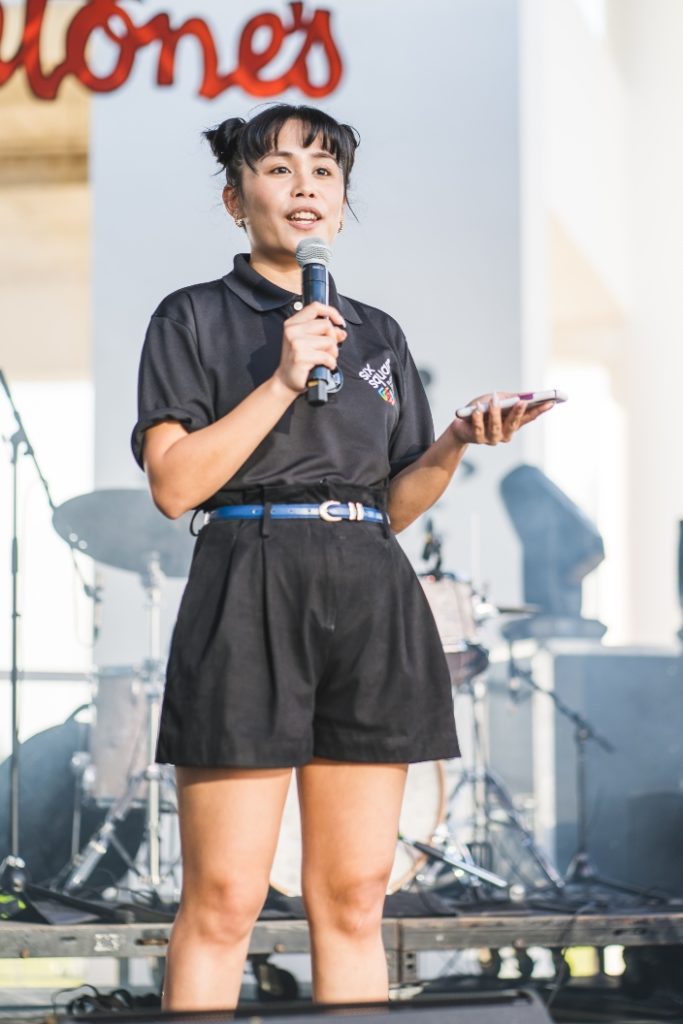
Regine Malibiran, Director of Programs 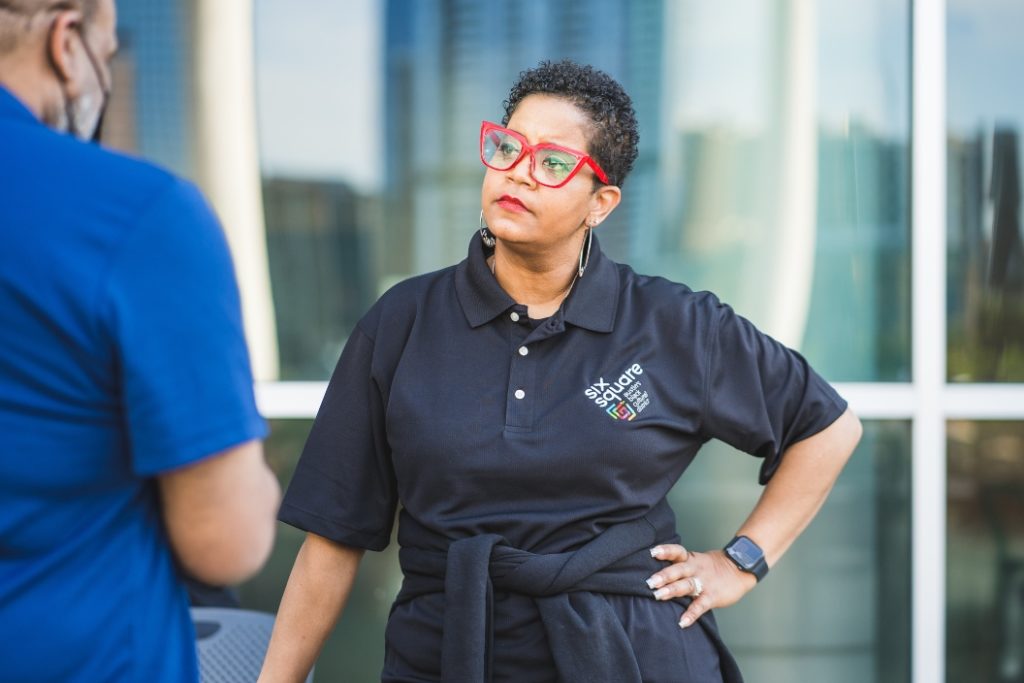
Pamela Benson Owens, Executive Director 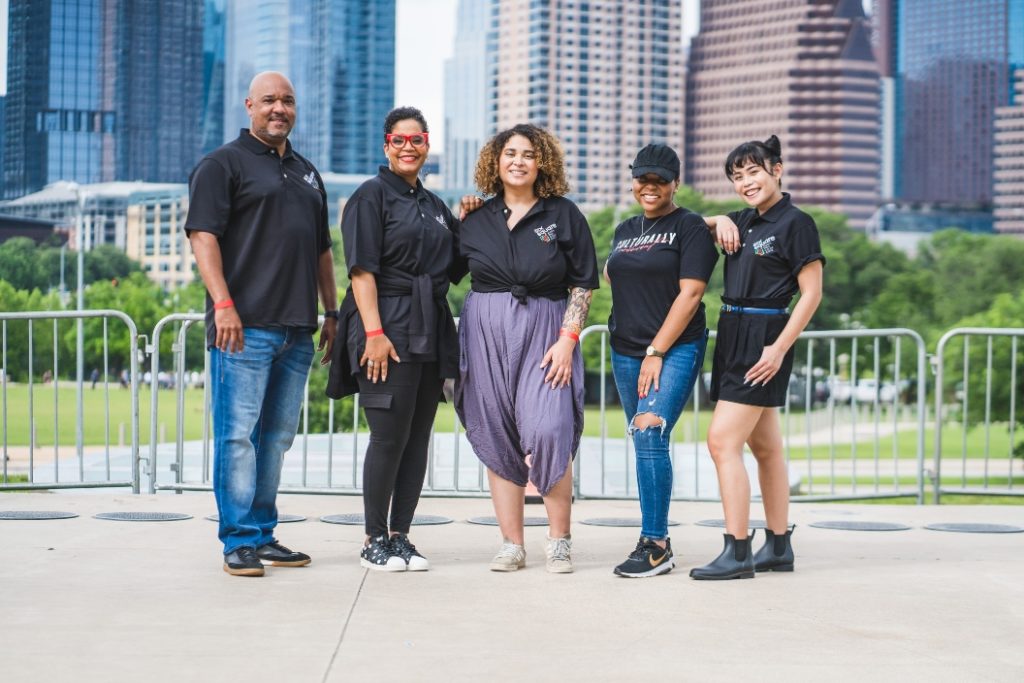
Six Square staff
Now more than ever it is important to partner and support organizations like Six Square. To learn more about how you can help visit the Six Square website.



